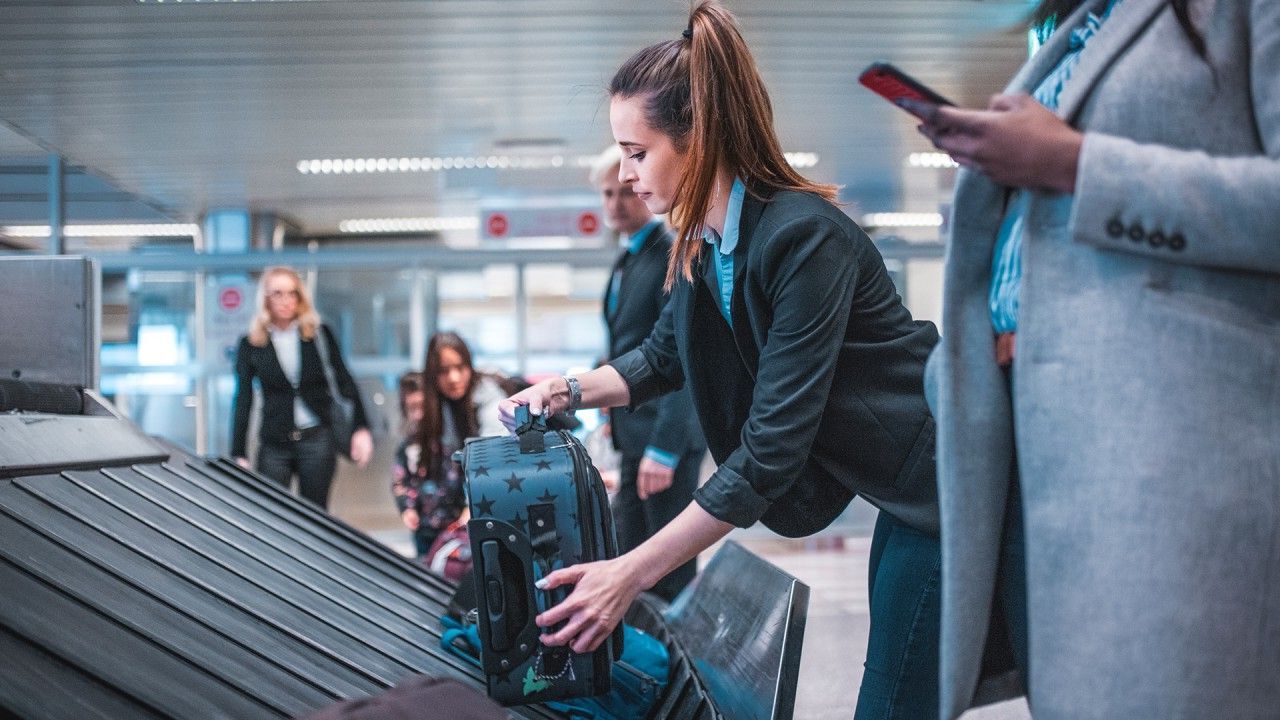
Ever wondered how your luggage gets from the check-in counter to the baggage claim? Baggage tracking is a fascinating process that ensures your bags travel safely and efficiently. With advanced technology, airlines and airports have significantly improved how they handle luggage. But how exactly does this system work? From barcodes to RFID tags, various methods are used to keep tabs on your belongings. Did you know that some airlines even offer real-time tracking through mobile apps? This means you can monitor your bag's journey just like you would track a package. Curious about the steps involved? Let's dive into 22 intriguing facts about baggage tracking that will make you appreciate the next time you see your suitcase rolling onto the carousel.
The Evolution of Baggage Tracking
Baggage tracking has come a long way from the days of handwritten tags and manual sorting. Modern technology has revolutionized how we keep tabs on our luggage.
-
RFID Technology: Radio Frequency Identification (RFID) tags are now used in many airports to track bags. These tags emit signals that can be read by scanners, providing real-time updates on the bag's location.
-
Barcodes: Most luggage tags still use barcodes. These are scanned at various points during the journey, helping to ensure bags are on the right path.
-
GPS Trackers: Some travelers use GPS trackers placed inside their luggage. These devices can be monitored via smartphone apps, offering peace of mind.
-
Mobile Apps: Airlines have developed apps that allow passengers to track their bags. These apps provide updates from check-in to arrival.
How Airlines Handle Baggage
Airlines have intricate systems in place to manage the millions of bags they handle each year. These systems aim to minimize lost or delayed luggage.
-
Centralized Baggage Handling Systems: Major airports use centralized systems to sort and route luggage. These systems use conveyors and scanners to move bags efficiently.
-
Automated Sorting: Automation plays a big role in baggage handling. Machines sort bags based on their destination, reducing human error.
-
Baggage Reconciliation: Airlines use reconciliation systems to match bags with passengers. This ensures that every checked bag is accounted for before a flight departs.
-
Delayed Bag Compensation: Many airlines offer compensation for delayed bags. This can include reimbursement for essential items or even a fixed amount of money.
Security Measures in Baggage Tracking
Security is a top priority in baggage tracking. Various measures are in place to ensure that luggage is safe and secure throughout the journey.
-
TSA Locks: Travelers are encouraged to use TSA-approved locks. These can be opened by security officers without damaging the lock.
-
X-ray Scanners: All checked bags go through X-ray scanners. These machines detect prohibited items and ensure that luggage is safe to transport.
-
Explosive Detection Systems: Some airports use advanced systems to detect explosives in checked luggage. These systems add an extra layer of security.
-
Random Inspections: Security personnel may randomly inspect bags. This helps to deter and detect any potential threats.
Innovations in Baggage Tracking
New technologies continue to emerge, making baggage tracking more efficient and reliable.
-
Blockchain Technology: Some companies are exploring the use of blockchain to track luggage. This technology offers a secure and transparent way to monitor bags.
-
Biometric Scanning: Airports are starting to use biometric scanning to link passengers with their bags. This can speed up the check-in process and reduce errors.
-
Smart Luggage: Some suitcases now come with built-in tracking devices. These "smart" bags can be monitored via smartphone apps.
-
Artificial Intelligence: AI is being used to predict and prevent baggage mishandling. Machine learning algorithms analyze data to identify potential issues before they occur.
The Future of Baggage Tracking
The future holds exciting possibilities for baggage tracking. Emerging technologies promise to make the process even more seamless and reliable.
-
Drones: Some companies are testing drones to deliver lost luggage. This could significantly reduce the time it takes to reunite passengers with their bags.
-
Internet of Things (IoT): IoT devices can provide real-time updates on luggage. These devices communicate with each other to offer precise tracking information.
-
Augmented Reality (AR): AR could be used to help passengers locate their bags in crowded baggage claim areas. This technology overlays digital information onto the real world.
-
5G Networks: The rollout of 5G networks will enhance real-time tracking capabilities. Faster data transfer speeds mean more accurate and timely updates.
-
Sustainable Practices: The industry is moving towards more sustainable practices. This includes using eco-friendly materials for luggage tags and reducing waste in baggage handling processes.
-
Customer-Centric Solutions: Future innovations will focus on improving the passenger experience. This includes more personalized tracking options and better communication from airlines.
Final Thoughts on Baggage Tracking
Baggage tracking has come a long way, making travel less stressful. With RFID tags and GPS technology, you can now keep tabs on your luggage from check-in to arrival. Airlines and airports are investing in these systems to reduce lost baggage incidents. Knowing your bag's location gives peace of mind and helps resolve issues faster.
Smart luggage with built-in tracking features is becoming popular, offering even more convenience. As technology advances, expect even more improvements in baggage tracking. This means fewer lost bags and happier travelers.
Next time you fly, consider using these tools to keep your belongings safe. Whether it's an app or a smart suitcase, staying informed about your luggage's whereabouts can make your journey smoother. Safe travels!
Was this page helpful?
Our commitment to delivering trustworthy and engaging content is at the heart of what we do. Each fact on our site is contributed by real users like you, bringing a wealth of diverse insights and information. To ensure the highest standards of accuracy and reliability, our dedicated editors meticulously review each submission. This process guarantees that the facts we share are not only fascinating but also credible. Trust in our commitment to quality and authenticity as you explore and learn with us.


